Invasive Species Resources
-
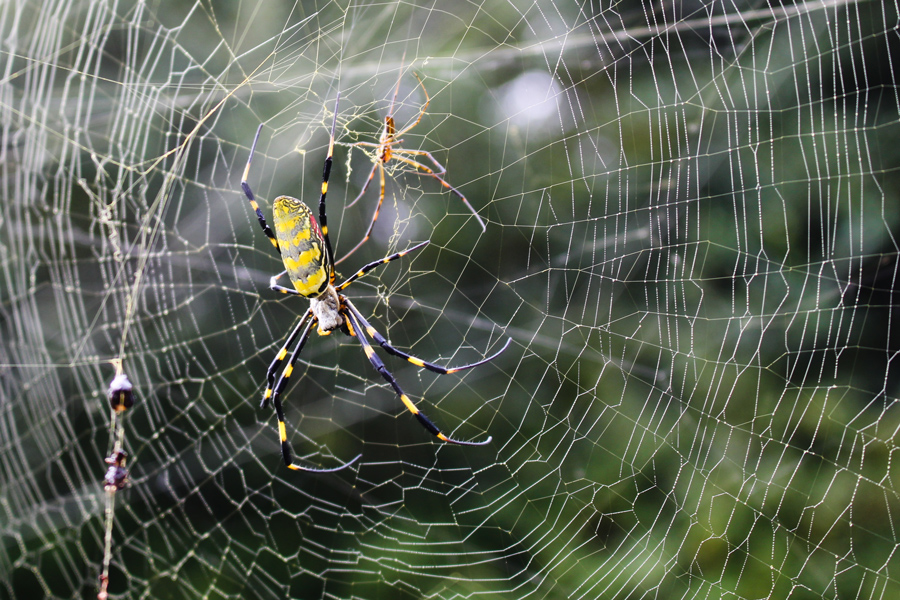
The Joro spider is native to East Asia and was first detected in Georgia in 2014. It is found in Georgia, North Carolina, South Carolina, and Tennessee, and is spreading to adjacent regions. It has one generation per year in its native range.
Adult females become sexually mature in September and early October. The female’s body is bright yellow with broad, horizontal bluish-green bands on the top side of the abdomen, and large red markings on the bottom side of the abdomen. She also has long, black legs with yellow-orange bands or—rarely—all black legs. Adult males mature by late August. The male’s cephalothorax is light brown with two dark brown long bands on both sides. His abdomen is elongate-oval with a greenish-brown topside that has two yellowish long stripes on both sides of the dark brown middle line.
Are Joros disrupting the ecosystem and displacing native species? This is a big question that a newly formed team of scientists is working on. However, we also need your help. The first thing we need to know is where Joro spiders are. Use the Joro Watch website (https://jorowatch.org) or the EDDMapS app to submit observations from parks, forests, and even your own yard. Fill out the report form and, if you can, count how many Joro spiders you see and upload pictures.
William G. Hudson, Rebekah Danielle Wallace, Jason Schmidt, Richard Hoebeke, and E. Richard Hoebeke
|
-
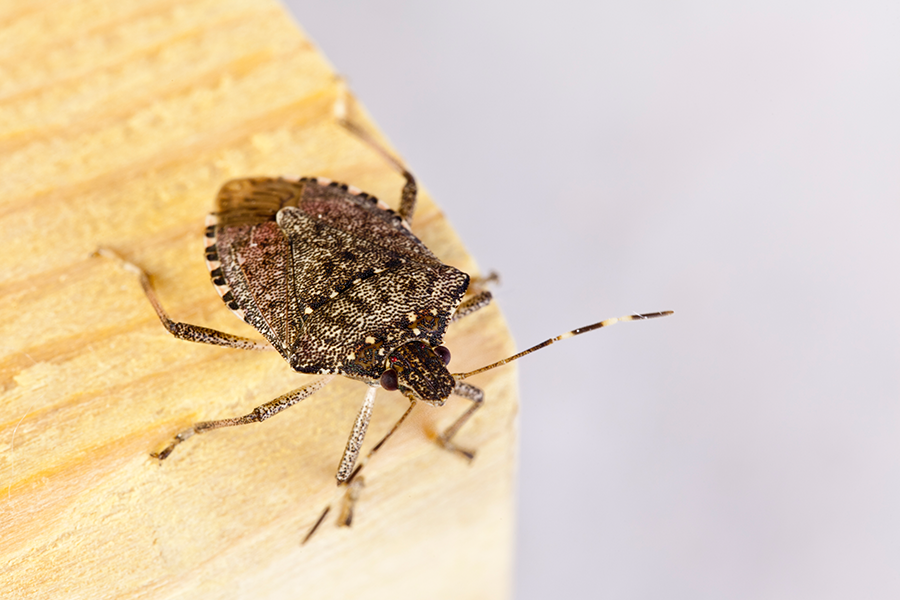
The brown marmorated stink bug is a landscape and agricultural pest in the United States. They seek dark and dry sites—such as a vehicle parked near trees—in the fall in which to overwinter. This pest is reported to feed on more than 170 plant species, including fruits, vegetables, and ornamental plants. This stink bug also is a nuisance pest as they aggregate and overwinter in man-made structures beginning in late fall.
William G. Hudson, Shimat V. Joseph, and Fawad Khan
|
-
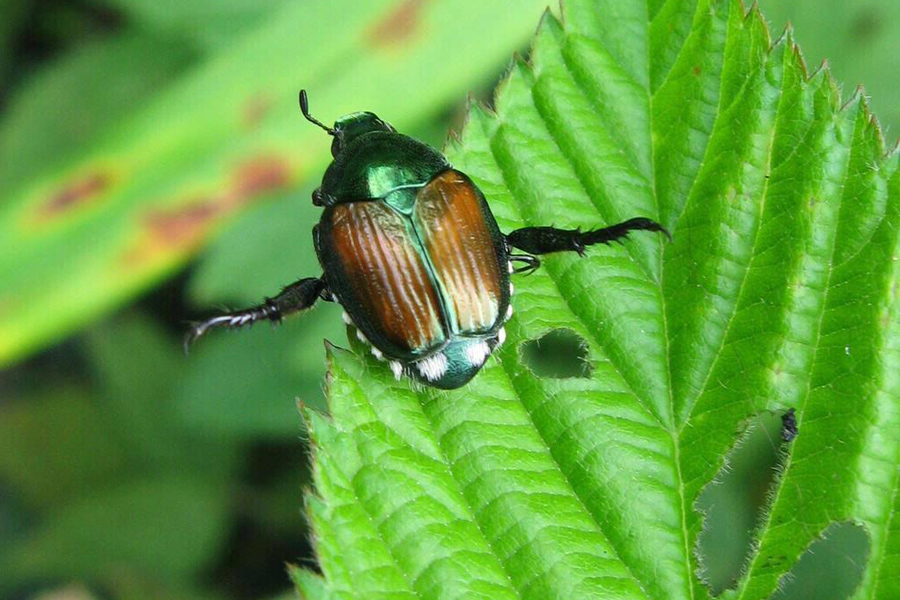
The Japanese beetle, as the name suggests, is native to Japan and was introduced to the U.S. through the transport of plant material. It is a highly devastating pest, attacking a variety of landscape and garden plants, fruit trees, field crops and turf. This circular provides an overview of Japanese beetles in the nursery and landscape, covering the biology, damage, monitoring, and management of this pest.
William G. Hudson, S. Kris Braman, Shimat V. Joseph, and SHAKUNTHALA NAIR
|
-

This publication contains basic information about slime molds, Spanish moss, lichens and mistletoe.
Jean Williams-Woodward and Mila J. Pearce
|
-

This resource helps readers identify and manage tawny crazy ants, a highly invasive species from South America. The ant somewhat resembles invasive Argentine ants (also known as sugar ants).
Dan Suiter
|
-
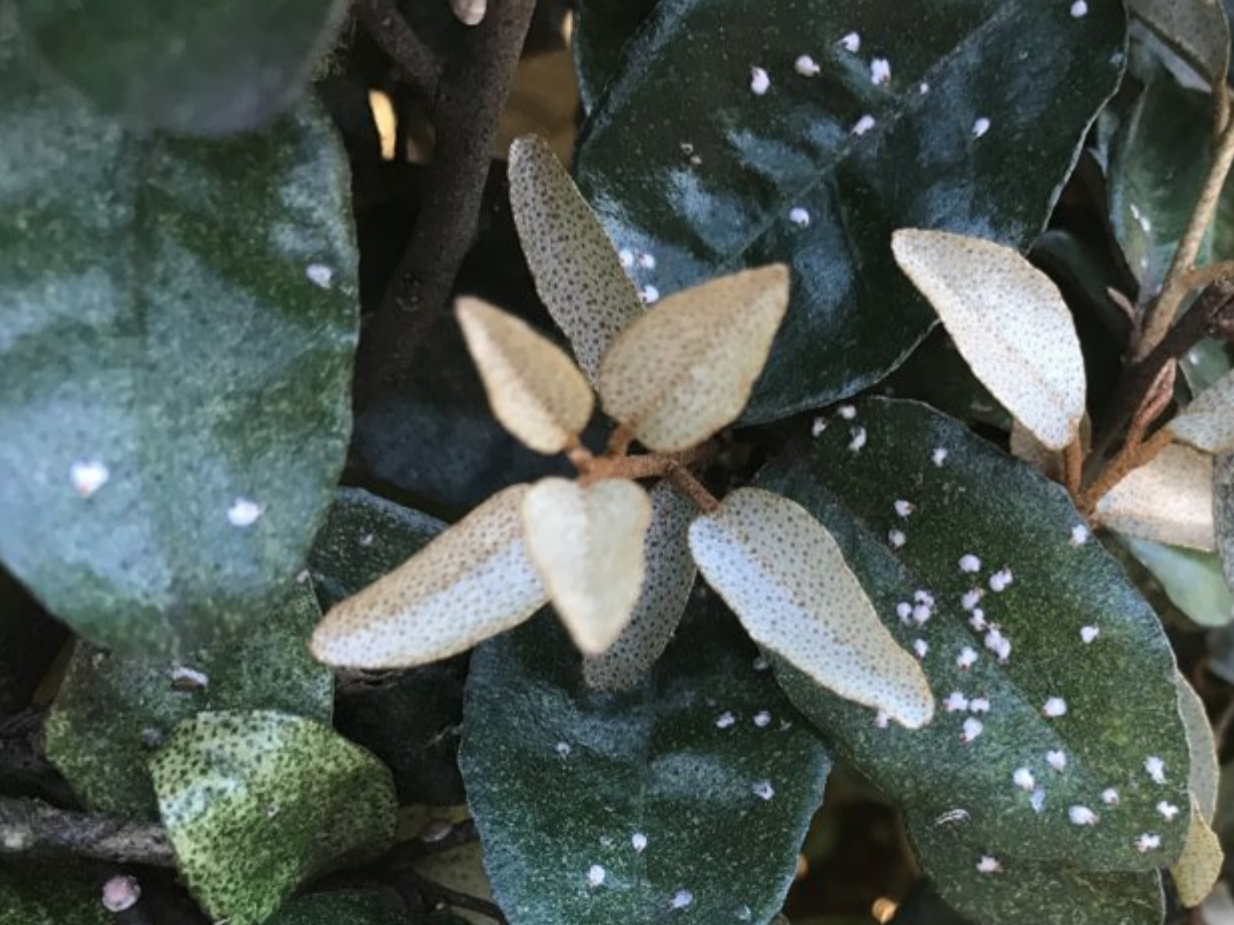
False oleander scale, which appears as white spots on leaves, is an invasive pest on ornamental plants. It is prevalent in Georgia and poses a significant threat to the aesthetic value of ornamental plants in the nursery and landscape.
Shimat V. Joseph
|
-
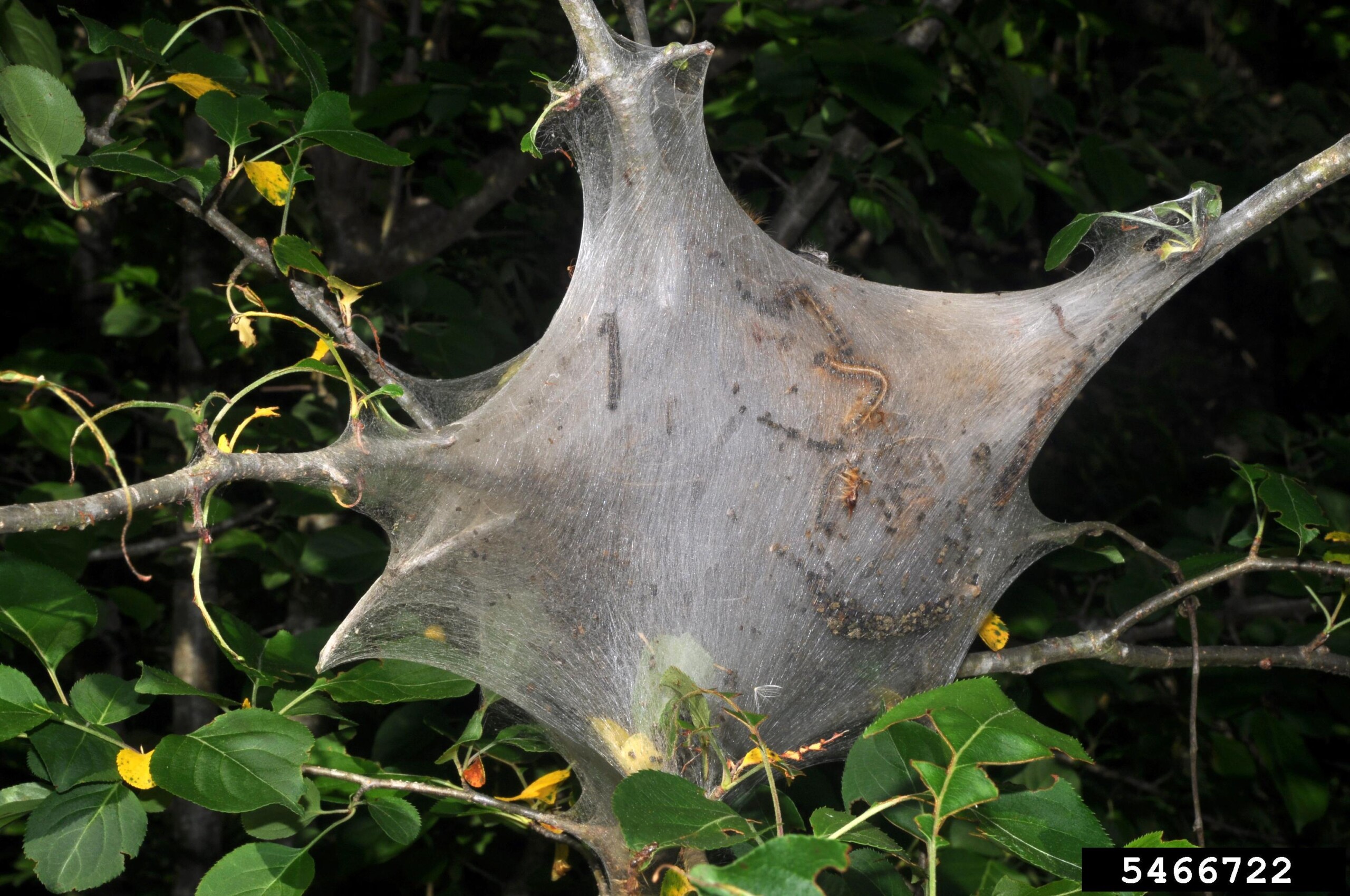
In North America, six species of tent caterpillars are found. The forest and Eastern tent caterpillars occur in Georgia, and can damage the aesthetic value of landscapes. There are several management strategies that work against tent caterpillars and this resource will help you identify and control them.
Kavitha Patchipala and Shimat V. Joseph
|
-
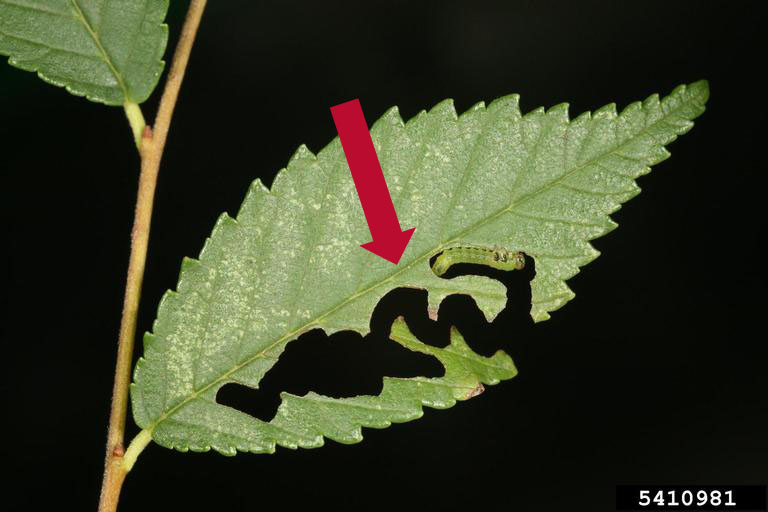
The invasive elm zigzag sawfly is a small wasp that has been reported in nine U.S. states, where it poses a threat to elm trees.
Rajesh Vavilapalli and Shimat V. Joseph
|
-

European hornets are widespread across much of the eastern United States. Native to Europe and Asia, they were accidentally introduced to North America in the mid-1800s. The European hornet is the largest species found in the United States and is particularly common in Georgia.
Shimat V. Joseph
|